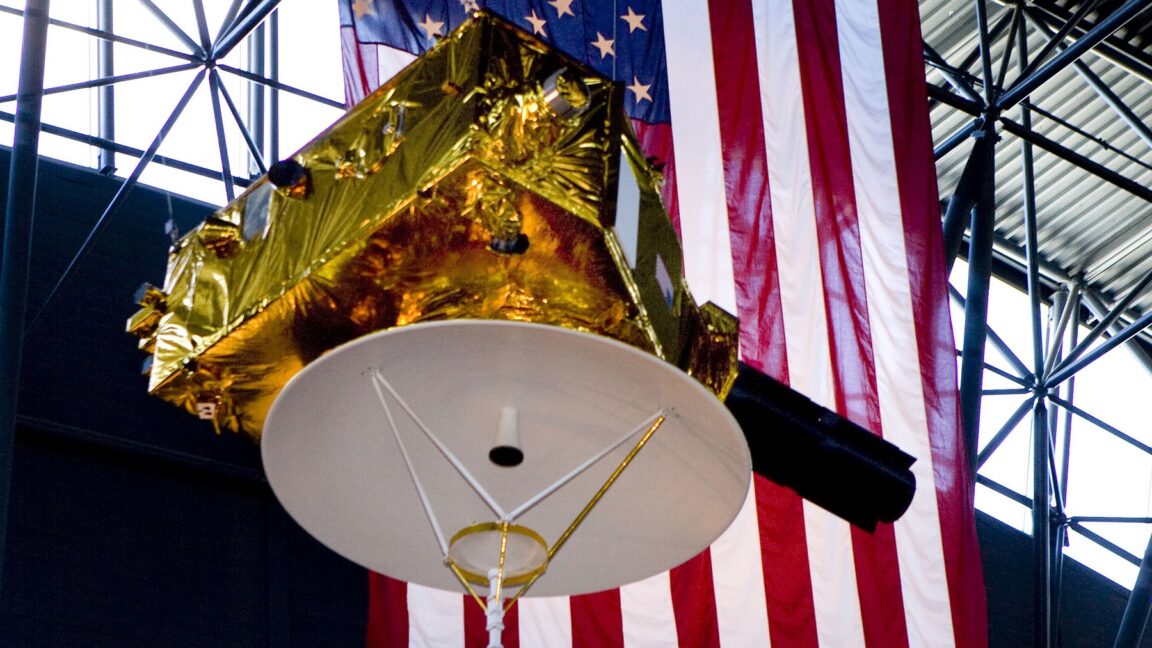Science
Urgent Budget Decisions Threaten NASA’s Key Space Missions

Federal funding for 19 active space missions is at risk as the current budget is set to expire at the end of September 2023. These missions, crucial for studying Earth’s climate and exploring the Solar System, face cancellation unless Congress acts quickly to pass a new budget. Without intervention, the implications for NASA and its scientific endeavors could be significant.
The White House has proposed a 25 percent cut to NASA’s overall budget for fiscal year 2026, with a nearly 50 percent reduction for the agency’s Science Mission Directorate. This would jeopardize funding for at least 41 missions, including those already operational in space. Historically, the president’s budget request is not definitive, as lawmakers often draft their own appropriations bills. However, the current proposals do not inspire confidence among space science advocates.
Critical Missions Face Uncertain Future
Among the missions potentially impacted are well-known projects like the Chandra X-ray Observatory and the two Orbiting Carbon Observatory satellites that monitor climate change data. Notably, the New Horizons spacecraft, which made headlines for its exploration of Pluto, is also on the chopping block. According to Alan Stern, principal investigator at the Southwest Research Institute, the spacecraft remains in excellent condition and has the potential to continue its mission until the late 2040s.
“New Horizons is perfectly healthy,” Stern stated. “Everything on the spacecraft is working… and all the instruments are, too.” With a development cost of $780 million, New Horizons has yielded groundbreaking scientific data, including recent findings about the Kuiper Belt, a region of icy objects beyond Neptune’s orbit. The mission’s continuation is now contingent on congressional funding decisions.
The urgency of the situation cannot be overstated. Stern described the potential shutdown of these missions as a “tragic capitulation” of U.S. leadership in space science. He emphasized that cutting these programs would undermine decades of progress and allow other nations to take the lead in space exploration.
Juno’s Contributions and Future Prospects
The Juno mission, which has been orbiting Jupiter since 2016, is another program facing uncertain funding. Lead scientist Scott Bolton reported that Juno continues to function well despite some degradation in its camera due to radiation exposure. Juno’s ongoing mission has provided vital data about Jupiter’s structure, magnetic field, and atmosphere.
Bolton highlighted the learning opportunities presented by Juno’s challenges. “We’re learning with Juno has benefits for Earth satellites, both commercial and national security,” he noted. Juno’s experience with radiation damage may inform future missions, including the Europa Clipper, which is set to launch in 2030 to study Jupiter’s icy moon.
NASA has requested budget outlines from mission leaders like Stern and Bolton, indicating that a “closeout” of projects could be imminent if funding is not secured. This would involve not only ceasing operations but also shutting down spacecraft permanently. “Once you turn off those spacecraft’s radio receivers, there’s no way to turn them back on,” Stern warned.
The agency’s future hinges on congressional action. As the clock ticks down to the end of September, the scientific community and the public await clarity on the funding landscape. The decisions made in the coming weeks will significantly influence the direction of U.S. space exploration and its position on the global stage.
-

 World4 months ago
World4 months agoScientists Unearth Ancient Antarctic Ice to Unlock Climate Secrets
-

 Entertainment4 months ago
Entertainment4 months agoTrump and McCormick to Announce $70 Billion Energy Investments
-

 Lifestyle4 months ago
Lifestyle4 months agoTransLink Launches Food Truck Program to Boost Revenue in Vancouver
-

 Science4 months ago
Science4 months agoFour Astronauts Return to Earth After International Space Station Mission
-

 Technology2 months ago
Technology2 months agoApple Notes Enhances Functionality with Markdown Support in macOS 26
-

 Top Stories3 weeks ago
Top Stories3 weeks agoUrgent Update: Fatal Crash on Highway 99 Claims Life of Pitt Meadows Man
-

 Sports4 months ago
Sports4 months agoSearch Underway for Missing Hunter Amid Hokkaido Bear Emergency
-

 Politics3 months ago
Politics3 months agoUkrainian Tennis Star Elina Svitolina Faces Death Threats Online
-

 Politics4 months ago
Politics4 months agoCarney Engages First Nations Leaders at Development Law Summit
-

 Technology4 months ago
Technology4 months agoFrosthaven Launches Early Access on July 31, 2025
-

 Top Stories2 weeks ago
Top Stories2 weeks agoFamily Remembers Beverley Rowbotham 25 Years After Murder
-

 Top Stories5 days ago
Top Stories5 days agoBlake Snell’s Frustration Ignites Toronto Blue Jays Fan Fury





















